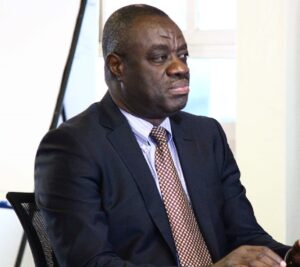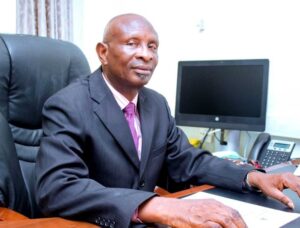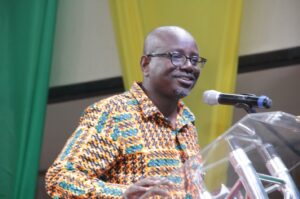Society is not static, but a very sensitive entity that responds and adjusts to demands of environmental impact.
Moreover, technology and improved standards of living and national population growth demand expansion and improvement in Ghana’s socio-cultural and economic outlook and structure; and Ghana in her determination to provide for the socio-economic needs of her growing and sophisticated population in the 90s, led to a national search for new growth pools to improve and expand national socio-economic frontier, and the die settled on tourism.
Tourism
Ghana, thus, in the 90s, formally designated tourism an inclusive and multi-sectoral industry that is founded on man-made, natural, cultural and heritage resources as new front burner growth pool and strategic sector for rapid and accelerated development, growth, socio-economic expansion transformation and modernisation, with rafts of cutting edge national tourism development policies and project initiatives.

Tourism’s designation as new national socio-economic frontier was reflective and demonstrated in action-oriented cutting-edge modern national tourism development policy and project initiatives. Notable among the initiatives included:
1990, PNDCL 238, National Commission on Culture
The historic period witnessed the passage in 1990 of PNDCL 238 which created the National Commission of Culture (NCC), a statutory institution which has the mandate to take pragmatic steps to initiate policies and projects to ensure the development and promotion of Ghana’s cultural tourism potential, its associated industries and their mainstreaming as an integral part of Ghana’s national socio-economic identity and outlook.
EI 1993, Ministry of Tourism
The passage of PNDCL 238, 1990 was followed with 1993 Executive Instrument (EI1993) on technical ministries and agencies of the Ghanaian civil service and the subsequent creation of the erstwhile Ministry of Tourism (MOT) in 1993, whose creation granted autonomy to the tourism sector as well as bolstered national tourism developmental efforts, which was hitherto clamped with other demanding sectors including information, education and others.
The defunct MOT underwent expansion, several rebranding, re-designations, brand names including the Ministry of Tourism & Modernisation of the Capital City (MOT&MCC), Ministry of Tourism and Diasporan Relations (MOTDR), Ministry of Tourism, Culture and Creative Arts (MOTCCA) over the years, but presently known as the Ministry of Tourism, Arts and Culture (MOTAC).
Competitive advantage
Political stability, relative national safety, coupled with warm and hospitable trait of the people as well as numerous infamous slavery and slave trade footprint of castles and forts along Ghana’s coast are all soft and priceless intangible resources which give the country peerless additional competitive tourism advantage over competitors as an outstanding emerging international tourism hub.
Impact on GDP
Tourism currently ranks as the fourth (4th) largest revenue earner and contributor to gross domestic product.
Ghana’s tourism potential overview
Ghana boasts outstanding and balanced national tourism potential and resources in all the four major and broad resource of man-made, natural, cultural and heritage resources, which fall across the length and breadth of the country.
Notable among national heritage tourism resources include landmark and historic slavery and colonial forts and castles, and other related slavery landmarks including slave wells and markets in Salaga, Gwolu Slave Defense Walls, Assin Fosu Slave River, Memorial Gardens and Research Centre, among others.
Among national natural tourism resources are the Afadjato at Amedzofe, and Wli Waterfall – reputed as West Africa’s tallest waterfalls at Wli near Hohoe in the Afadjato South District and the Hohoe Municipality respectively in the Volta Region. In addition, there is the Equator and the Greenwich Meridian – both in Tema in the Tema Metropolitan Assembly, Greater Accra Region, as well as the historic Centre of Our Homeland and its associated landmarks at Kintampo in the Kintampo North Municipal Assembly, Bono East Region.
Others
The Kakum Forest Reserve and its Canopy Walkway at the Kakum National Park at Kakum, in the Central Region is another popular and prominent natural tourism cash-cow attraction as well as West Africa’s Biggest Tree at Espan Forest Reserve near Oda in the Asene Manso-Akroso District in the Eastern Region.
Begro Waterfalls, Tinni Waterfalls and Ote Waterfalls are other outstanding national natural tourism assets located at Begro in the Fanteakwa North District, Atiwa West District and Afadjato South Districts in the Eastern & Volta Regions.
Culture & hospitality resources & potential
The cultural tourism sub-sector is the foremost tourism unique selling point (T-USP) in the tourism-mix universally. Ghana’s cultural tourism stature is further reinforced by the diverse and variety of ethnic and tribal groups and stunning rich gastronomy including akple, fufu, kokonte, yam, kenkey, tuo zaafi, yakayake, rice and beans, as well as rich cultural values and heritage festivals including Akwasidae, Aboakyer, Bakatue, Edina Bronya, Hogbetsotso zaa, Homowo, Tezaa ,Kplejo, Kundum, Fetu Afahye and others are indispensable tourism cash-cows but the current national tourism development strategy (TDS) has no provision for these. It fragrantly neglected and relegated the cultural sub-sector and its related industries in the scheme of things.
Researches
Multiple researches and studies concluded that Ghana has great national tourism potential that is very much relevant and suitable to Ghana’s socio-economic development aspirations. When strategically harnessed, these can dramatically turn Ghana’s cultural and socio-economic fortunes around, including expansion, modernisation, transformation and development aspirations.
UNWTO, UNESCO, WTO and WIPO Studies
Additional researches by the United National World Tourism Organisation (UNWTO) and other analogue multilateral organisations including the United Nations Educational, Scientific and Cultural Organisation (UNESCO), the World Trade Organisation (WTO) and the World Intellectual Property Organisation (WIPO) and others has also affirm that tourism is the industry which would impact and shape the international socio-economic order if destinations, facilities, industry stakeholders and players adhere strictly to industry best practice principles, protocols, rules and regulations.
Ghana cannot afford to lose out on the international tourism train.
MOTAC & national tourism development narrative
Ghana, in the 90s, made tourism the front-burner national socio-economic transformation catalyst with a series of cutting-edge national tourism development policies and projects including the passage of PNDCL 238 in 1990, which created the National Commission on Culture (NCC), and Executive Instrument (EI) in 1993, which formally created the current Ministry of Tourism, Arts and Culture (MOTAC) and its predecessors as specialist national technical ministry within the civil service.
1996-2010 tourism development blueprint
The first ministry in 1996 initiated and drafted the evergreen 1996-2010, 15-year comprehensive and impressive long-term national tourism development blueprint for the country, which has seen and recorded consistent and improved annual tourism growth in both visitor numbers and revenue earnings, to consolidate the modest gains, to reaffirm the relevance and importance of tourism to Ghana’s socio-economic transformation, expansion, modernisation and overall development course.
2003 to 2007 – a 4-year Action Plan
Mr. Jacob Otanka Obetsebi Lamptey, the fallen statesman and action-oriented ex-Minister of Tourism of blessed memory, hit the right cords and provided crucial, critical and strategic leadership with innovation to shine, revive, rehabilitate, reconstruct, reposition, rekindle and re-energise the historic 1996-2010, 15-year comprehensive national tourism development blueprint and the general national tourism development aspiration as a whole with an action-oriented and deliverable 2003-2007 4-year Strategic Action Plan, which brought unprecedented fresh life and vibrancy to bear on national tourism development cause and strategy, which rebranded, repositioned and represented Ghana as competitive and emerging tourism destination hub of endless variety and diversity.
These initiatives and others gave the country’s evergreen and burgeoning infant tourism industry the needed firmer footing.
Experience
The 1993 formal creation of the erstwhile Ministry of Tourism and its subsequent realignments, rebrandings and expansions into the current Ministry of Tourism, Arts and Culture (MOTAC) as well the passage of the Tourism Act (TA) 2011, Act 817 are experiences and practices that have given the country enough data and experience to adopt and use innovation to reengineer, refine, re-strategise, reposition to consciously nurture double digit accelerated and rapid growth to transform Ghana into an attractive and outstanding global tourism destination hub.
Ministerial target
Multiple studies and researches have observed that tourism’s current ranking and contribution as the fourth largest contributor to national GDP is far below the sector’s actual capacity. Fortunately, the Minister of Tourism, Arts and Culture, Alhaji Dr. Ibrahim Mohammed AWAL, has set an ambitious target to reposition, transform and elevate tourism as the foremost contributor to GDP by 2025.
Defects, omissions & commissions
Tourism is an inclusive and holistic industry that is founded and driven on man-made, natural, heritage and cultural resources; as such these indispensable and frontline socio-economic industries and/or sectors are equal frontline players in the tourism-mix, and are equally harnessed in building an outstanding, competitive and attractive industry and destinational reputation.
Analysis
An in-depth scientific and professional analysis of the Tourism Act 2011, Ghana’s current national tourism legislation and legal regime (L&LR), flagged the legislative piece down. The examination revealed gapping defects and omissions on the tourism legal regime as well as Ghana’s Tourism Development Strategy as a whole.
Ghana’s current Tourism Development Strategy (TDS) and especially the Legal Regime (LR) as provided by the Tourism Act, Act 817, 2011, have fallen short of basic and fundamental characteristics of meaningful and purposeful holistic tourism legal regime.
The law has relegated and neglected some strategic and indispensable subsectors, and these stood out as key causes of Ghana’s stunted and unimpressive tourism growth over the years.
Notable among key gapping defects, neglects, relegations, disregards, commissions and omissions of indispensable sub-sectors in Ghana’s current tourism legal regime and development strategy (TLR&DS) included:
NCC & National House of Chiefs
The cultural sub-sector is the peerless and indispensable tourism unique selling-point (T-USP) in the tourism-mix around the world, but Ghana’s current Tourism Act and Strategy has neglected and relegated the cultural sub-sector; and is loudly very silent on the culture industry. The Tourism Act has not provide for representation of both the National Commission on Culture (NCC), the statutory national institution, which has mandate for culture. Moreover, the National House of Chiefs (NHCs) or a traditional authority – the custodians of our cultural heritage – has no representation on the GTA Board as provided for in the current Tourism Law.
Local Government Service
Local Government Service (LGS) is an important public institution in Ghana’s local governance and decentralisation practice but has no representation on the GTA as provided by the current Tourism Act.
Ministries of Communication, Transport, Trade, Roads and Health
Tourism is an outstanding inclusive industry that embraces and encompasses every Tom, Dick and Harry. Some sectors are outstanding and indispensable in basic and fundamental primary tourism development strategy including communication, transport, trade, road, health and security; however, as dictated by the provisions of the current Tourism Act, the Ministry of Communication and Digitisation has no representative on the Ghana Tourism Authority Board. Other strategic and important ministries which are also neglected and currently have no representation on the GTA Board as provided the current law include the Ministries of Transport, Trade and Industry, Roads and Highways, Health, Interior, among others.
The defects identified call for an urgent need to reengineer and amend the national tourism development strategy.

Reforms & way forward
The burgeoning tourism industry is very much relevant, strategic and important to Ghana’s socio-economic expansion, development, modernisation and transformation aspirations. It is therefore incumbent on the Ministry of Tourism, Arts and Culture (MOTAC) to, as a matter of urgency, allocate a fraction of the ongoing World Bank/IDA tourism grant for comprehensive national tourism development reforms.
Conclusions from multiple national and international tourism researches and studies all affirm that the global tourism evolution has come to stay; tourism would therefore continue to influence and impact the global socio-economic outlook collectively as well as the gross domestic products (GDPs) of individual economies across the world.

National UNWTO Whip
The United Nations World Tourism Organisation (UNWTO), as the international tourism specialist agency, sets the parameters and the benchmark for excellence in tourism development; it is, therefore, mandatory and obligatory on member-countries, destinations, facilities, investors and tourism businesses around the world to initiate and implement tourism development policies and projects that align with UNWTO best industry practices, protocols, guidelines, rules and regulation to ensure tourism development excellence around the world.
The Ministry of Tourism, Arts and Culture (MOTAC) must, as a matter of urgency, create UNWTO Directorate at the ministry, which must be managed by a national UNWTO Whip to, among others things, ensure all national tourism development projects and policies are UNWTO best industry practices and protocol compliant.
The Writer is Tourism, Brands & Branding, Communication & Marketing Consultant, Practitioner, Analyst, Advocate & Activist
Email: [email protected]










